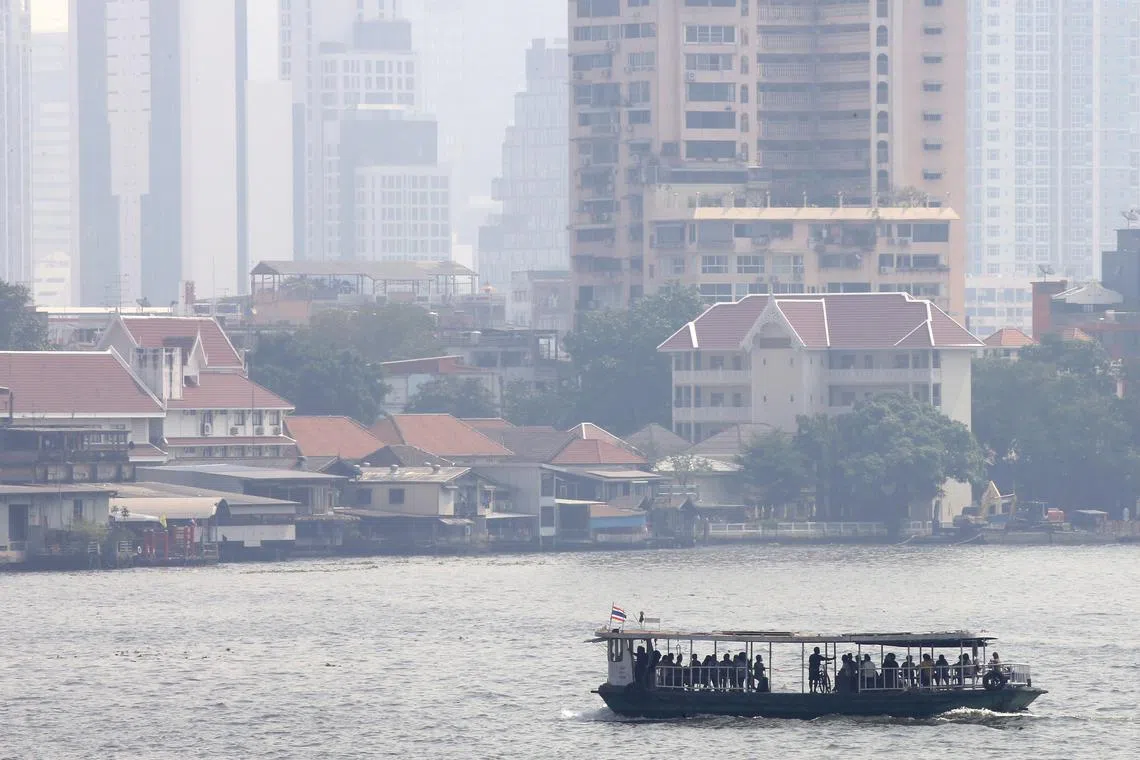Consider working from home, as air pollution hits unhealthy levels: Thai PM Prayut
Sign up now: Get insights on Asia's fast-moving developments

Bangkok's air quality has worsened owing to agricultural burning and forest fires.
PHOTO: EPA-EFE
Follow topic:
BANGKOK - People in Thailand were advised by the government to wear face masks outdoors and consider working from home on Thursday and Friday, after the country’s air pollution reached an unhealthy level.
The Thai Meteorological Department (TMD) forecast that PM2.5 levels would rise across much of the country on Thursday and Friday, as the fine-dust pollution accumulated in stagnant air.
PM2.5 can penetrate deep into the lungs and has been linked to heart and lung diseases, as well as cancer.
“Prime Minister Prayut Chan-o-cha is concerned about people’s health, especially those in vulnerable groups, and advises them to wear sanitary or N95 masks when leaving the house, and to avoid prolonged outdoor activities,” government spokesman Anucha Burapachaisri said on Wednesday.
Mr Prayut also urged government agencies and businesses to let staff work from home to reduce air pollution from traffic.
Mr Anucha advised those who have to leave their homes to wear a face mask and check the air quality in their area via websites or apps.
He said that those with chronic health problems or respiratory symptoms should consult a doctor before doing outdoor activities.
The TMD forecast that conditions would improve from Saturday as winds pick up and start dispersing the air pollution.
On Wednesday and Thursday, a thick haze blanketed the Thai capital as the city’s air pollution reached unhealthy levels, with several air-quality monitoring stations reporting unsafe amounts of air pollution.
Bangkok Governor Chadchart Sittipunt said unsafe levels of dust were expected to last until Friday. This was due to stagnant air, agricultural burning and forest fires.
On Thursday, air quality was registered as “very unhealthy” in Bangkok and other areas, including Ayutthaya and Kanchanaburi, according to iqair.com
As at 6pm on Thursday, Bangkok’s air quality index (AQI) reading was recorded at 156 on IQAir, a technology partner of the United Nations Environment Programme.
AQI readings of above 100 are considered unhealthy. Levels that cross 200 are regarded as very unhealthy, while those beyond 300 are considered hazardous.
Residents complained of poor visibility and trouble breathing.
“I feel my eyes burn. I can barely see when I have to ride a motorcycle against the wind,” said 51-year-old Bangkok motorcycle taxi rider Kanjanaporn Yampikul.
THE NATION/ASIA NEWS NETWORK, REUTERS

